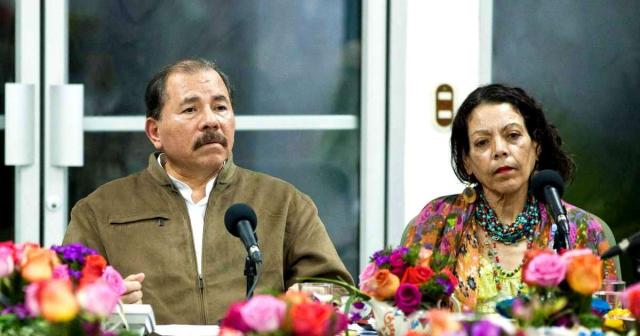The Organization of American States (OAS) has presented the seventh annual report of the Castle Institute, in charge of sharing with Latin America the lessons of democracy and economics that can be drawn from the transformation of the former communist countries of Eastern Europe. This study, prepared by independent international experts, denounces Cuban advice in the repressive machinery of Venezuela and requests the International Criminal Court to investigate his intervention and participation in the commission of crimes against humanity in Venezuela.
At the presentation of the report, Tamara Sujú, director of the Casla Institute, read the testimony of a Venezuelan torture victim who tells how she was hung upside down and her feet were whipped, causing her nails to pop off after a few days. "There was a Cuban, who, laughing, told the person who was spanking me: 'I don't think you're hitting him hard enough. I think I'm going to have to show you how it's done.' That Cuban brutally whipped my feet."
"After the 2014 demonstrations, Maduro took charge of the persecution, supported by the experience of the Cuban regime in terms of repression and monitoring, application of intimidation techniques, torture to subdue opponents and dissidents, allowing them to participate in the planning and execution of torture and sexual violence," Sujú added.
From the Casla Institute they have identified a semi-secret unit of the Bolivarian National Intelligence Service (Sebin) dedicated to the training of agents in what they call Base Cien. There, senior Cuban officials are dedicated to training officials who infiltrate political parties. This unit is a copy of the Cuban Technical Department called KJ (it may have another name at the moment), which is dedicated to visual checks, although it also has an analysis unit and a detention unit, explains Sujú.
In March of this year, adds the director of the Casla Institute, they denounced the Cuban regime at the International Criminal Court for crimes against humanity committed in Venezuelan territory. "We ask the investigation team of the International Court handling the Venezuela case to investigate the Cuban regime for its direct participation in the formation, planning of repression, persecution and in the induction of crimes typified in the Rome Statute," he stressed. .
The complaint comprises three parts. The first is a compendium on the background of Cuban interference in Venezuela and the penetration and imposition of the Castro-communist ideological model in all public institutions, security and intelligence organizations and the National Armed Forces, where witnesses from Cuba and Venezuela narrated for the Cut to how this merger happened. The second includes testimonies from soldiers and civilians and their experience with the Cuban Government, either because they worked with them within the institutional structure, because they were trained and trained in Venezuela and Cuba by Cuban officials or because they had direct contact with military agents or of Cuban intelligence. The third part includes the testimonies of the victims of torture induced or executed by Cuban officials, together with Venezuelan officials, Tamara Sujú insisted.
For this complaint before the International Criminal Court, the Casla Institute obtained the eight confidential agreements signed between Cuba and Venezuela on May 26, 2008, by General Álvaro López Miera, at that time, vice minister of the Cuban Armed Forces and head of the General Staff and General Gustavo Reyes Rangel Briceño, Minister of Popular Power for Defense. López Miera is currently Minister of Defense of Cuba.
The first agreement between Venezuela and Cuba speaks of the creation and conditions of permanence in Venezuela of the Cuban Coordination and Liaison Group. The second, on the development of the Military Intelligence Service and the third agreement, on technical assistance in the field of counterintelligence
On the other hand, the report adds that the Casla Institute has detected an "insane increase in widespread systematic persecution" in Venezuela, with dozens of people persecuted and psychologically tortured, including "political leaders, union members, directors and members of NGOs, influencers, activists , relatives of persecuted people".
"In Venezuela, crimes against humanity, temporary forced disappearances, torture, arbitrary detentions continue to be reported. The work of human rights, of defending those who have been victims of human rights violations, must be done by everyone. To have a hemisphere free of crimes against humanity, we must remove ideological prejudices," said Luis Almagro, Secretary General of the OAS in presenting the report.
"The Annual Report on Crimes against Humanity in Venezuela of the Casla Institute, presented at the OAS, exposes before our continent and in this organization the complaints of crimes against humanity that occur in Venezuela. It is important to point out and identify the chain of command in the commission of these crimes and establish individual responsibilities within the repressive structures. This report is another key step on that path to justice," Almagro added.
"As in previous reports, this one also presents evidence about the torments to which Venezuelan victims are subjected. The report also includes an account of complaints regarding temporary forced disappearances, violation of the right to defense and impediment to trusted lawyers to request investigative procedures. The intelligence agencies that go to look for the relatives of the detainees, the subjection to physical and psychological torture, death threats against their families, sexual and gender violence," he concluded.
What do you think?
COMMENTFiled in:
